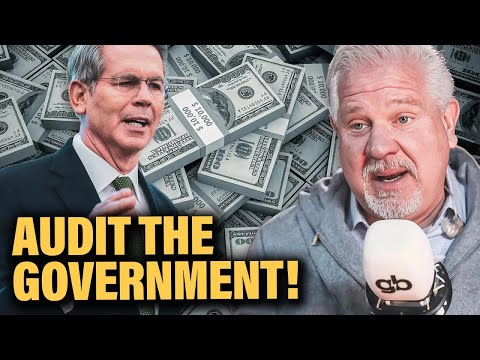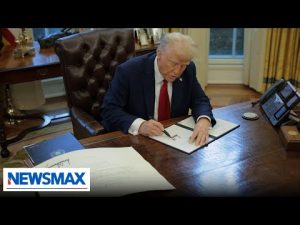**The Unelected and the Unruly: The Clash Between Bureaucracy and Democracy**
In the world of American politics, the term “unelected” has become a popular buzzword, particularly among those who rally behind the banner of President Donald Trump. This phrase was recently spotlighted during a discussion about the individuals who run Washington’s bureaucratic machinery. It seems that those who wear the badge of “unelected” are often at the center of a fiery debate between the powers of the president and the long-standing federal agencies. Indeed, some prominent voices are pointing fingers, insisting that the real power lies not in the Oval Office but in the shadowy corridors of federal offices stacked with bureaucrats.
Steven Miller, a steadfast supporter of the former president, brought this issue to the forefront. He emphasized that it’s quite ludicrous to call Trump’s team “unelected” when they are indeed part of an administration that won a significant election. In his view, it’s not just about Donald Trump; it’s about the reality that the president alone is given the constitutional authority to run the Executive Branch of government. Miller argues that all those bureaucratic roadblocks constantly gnawing at the Trump agenda are, in fact, representatives of what he calls the “Rogue bureaucracy.” It is crucial to note, as Miller emphasized, that the people in charge of implementing the elected president’s agenda are just that—elected representatives’ appointees, not some faceless government entities.
This clash between elected officials and the so-called unelected bureaucracy has tangible consequences. Recently, a federal judge issued a ruling impacting the Secretary of the Treasury’s ability to access sensitive payment systems, raising eyebrows and concerns about who really controls the purse strings of the nation. Treasury Secretary Scott Besson took to the airwaves to insist that the team in question consists of qualified treasury employees who do not have the ability to alter any systems. Instead, they’re there to observe and suggest improvements while keeping their hands firmly off the controls.
And while the Secretary appeared to be strictly transparent, the questions raised by media members painted a different picture. The revealing inquiry into whether the Treasury Department’s current operations might interfere with the IRS’s data access only added fuel to the fire. The Secretary disclosed alarming facts: the IRS still relies on archaic systems dating back to the days when Cobalt was king. One has to wonder how this outdated technology could possibly be expected to manage today’s demands effectively.
Amid the chaos, voices from the military world are joining the conversation. They emphasize that strength derives from unity, not the diversity that has been touted in recent years. The belief is that a cohesive team is better equipped to meet challenges than individuals from disparate backgrounds fighting for their own recognition. This notion of unity is echoed not only in military ranks but also in the need for government operations to work harmoniously, devoid of the divisions that political rhetoric breeds.
With growing scrutiny over how federal funds are managed, one has to ponder the lessons learned from our nation’s founding fathers. During their tenure, the IRS and its spending were treated as sacred issues, unlike the seemingly carefree expenditure of today. Taxpayer money wasn’t just tossed about without consideration. The frontline fighters in the fiscal arena charged with oversight or reform simply appear too busy fending off waves of criticism rather than controlling the financial ship.
In this tumultuous era of bureaucratic battles and governmental bickering, the call for audits and transparency has never been louder. Whether it’s the federal budget or the everyday operations of the Treasury Department, demands for clarity ring across party lines. The push for accountability encourages citizens to wonder whether it’s possible to reclaim a system that feels increasingly out of touch—with democratized governance being held hostage to unelected powers that threaten to overshadow the people’s voice.
Ultimately, as these conversations unfold—sometimes heatedly—the hope is for a return to true representation. A government that not only hears the voice of the people but also honors the sacred trust that comes with governance. Let’s raise a toast and a few eyebrows to the beautiful mess that is democracy as it wrestles with both bureaucracy and its own identity. After all, in the realm of political discourse and governance, one thing shines unmistakably clear: the people of America deserve a government that truly represents their interests—ideally without too many trips to the courtroom.



